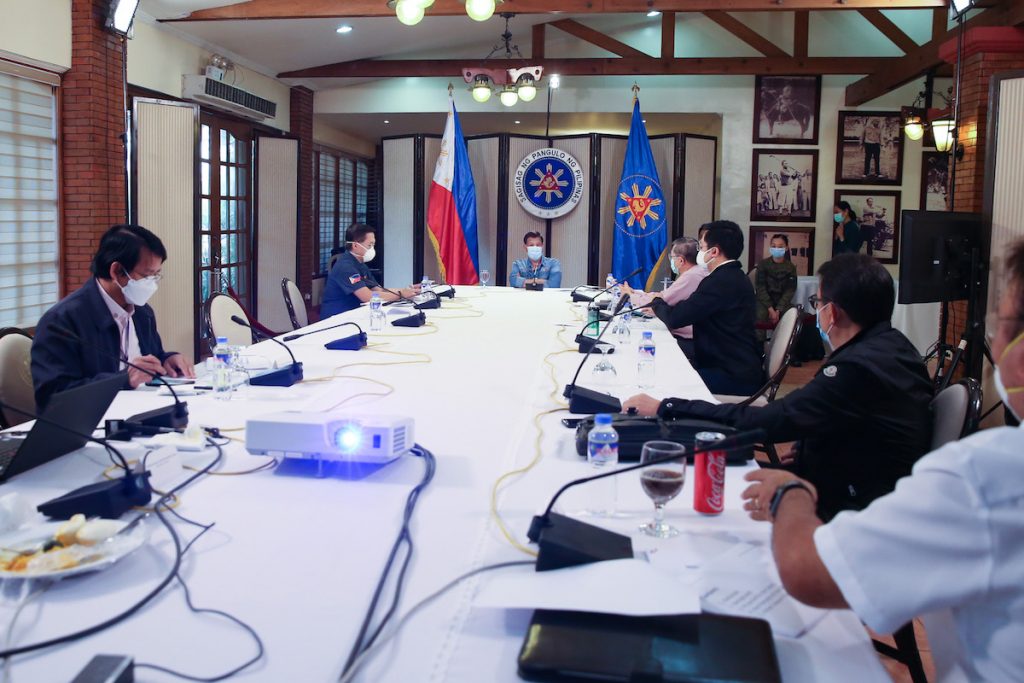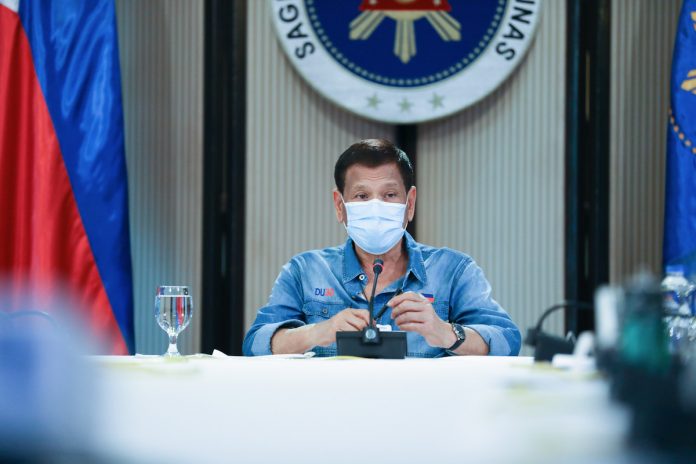What did Philippine President Rodrigo Duterte say in his after-midnight addresses on television?
It’s this: “If the COVID-19 problem is not fixed, we have all failed. Don’t rush it. Let me tell you … COVID-19 … could run for two years.”
And this: “COVID, what’s the answer? Vaccine? No vaccine? COVID stays.”
At first glance, he’s telling us that we must be prepared to bite the bullet for the next two years while we wait for the world’s scientists to develop a vaccine for the infectious disease.
But in the same breath, he seems to be telling us that we should simply accept the inevitable, that his government should not be blamed if it fails to stop the deadly disease from ravaging the country.
We’re well aware that an anti-COVID-19 vaccine will take time to be developed. This has to pass rigorous clinical trials before it is approved for mass production. Experts believe that at the earliest, it would take 18 months to come up with such a vaccine.
Duterte’s warning that Filipinos should expect to endure two years more of COVID-19 without telling us what his government would do to address the contagion with concrete steps and minimize its adverse effects smacks of defeatism.
Duterte wants us to throw in the towel in abject surrender and leave us to our own devices.
By telling us nothing about what he would do henceforth to help Filipinos cope with this life-and-death situation is pure and simple abdication of his responsibility to provide direction and leadership to the nation at a time when it is most needed.
To be fair, the national government is now implementing a social amelioration program that seeks to help the poor and disadvantaged sectors by giving them monthly subsidies for at least two months while the state of public health emergency has yet to be lifted.
But that came only two weeks after the lockdown had been imposed, not before, which should have been the case if it really had its ears to the ground.
Duterte is also silent on whether his government would be able to sustain a state of emergency for the next two years without firm and decisive leadership.
We’re talking about rallying the troops — not the military and the police, but the Filipino people themselves — to fight the contagion and not give up.
The experts have spoken — we should maintain social distancing, practice frequent hand-washing, and health authorities should accelerate mass testing, among others, so that the virus is not passed from one person to another.

That’s from the point of view of medical practitioners, but there’s also the economic and social dimensions to consider.
Roughly one-fourth of the Philippine population lives below the poverty threshold. It is they who stand to get hurt the most as they have lost their jobs and their livelihood with draconian quarantine and lockdown policies that have left them in the lurch, unable to feed their families and to keep body and soul together.
We fully support the suggestion of eminent economists for a calibrated lifting of the community quarantine in selected areas to allow the economy to dust itself off from near-total standstill and go on the road to gradual recovery.
Doing nothing for the next two years while waiting for a vaccine against COVID-19 to be developed will consign poor Filipinos to sure death from hunger and deprivation.
And by the way, Duterte should not make outrageous claims in press conferences he likes to hold at ungodly hours.
He was being too stingy and extremely economical with the truth when he claimed that he was the first leader to order a lockdown to combat the virus.
Here’s what he actually said: “I saw this coming long before. I’ve been following this COVID. I’m the first to place a lockdown because I’ve been following the story… I’ve been reading about it from different sources of knowledge — Facebook, everything that I can get my hands on, to study the matter because I’m the president.”
Obviously, he hasn’t heard of Wuhan, China, the epicenter of COVID-19, which was locked down as early as February and only recently opened up this week.
Ernesto M. Hilario writes on political and social justice issues for various publications in the Philippines. The views and opinions expressed in this article are those of the author and do not necessarily reflect the official editorial position of LiCAS.news.









